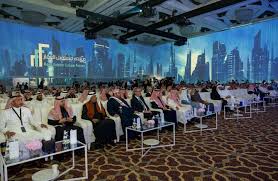RIYADH: The Real Estate Future Forum is set to serve as a global hub for industry leaders, policymakers, and investors as Saudi Arabia transitions toward a diversified and innovation-driven economy.
The event will be held from Jan. 27— 29 at the Four Seasons Hotel in Riyadh and will gather over 300 speakers from 85 countries to lead discussions on the direction of real estate.
This year’s edition will also spotlight the Middle East’s $1 trillion real estate pipeline, which is driving changes in urban development and creating new regional economic opportunities.
Saudi Arabia at the forefront of real estate evolution
The Kingdom’s Vision 2030 reforms have positioned the country as a leader in real estate development, combining innovation, sustainability, and economic growth.
Forum participants will get an in-depth look at major projects, including NEOM, The Red Sea Project, and Diriyah Gate, and their economic impact and long-term sustainability.
The discussions will provide insights into how these initiatives are influencing the broader real estate landscape.
A $1 trillion opportunity for global transformation
With the Middle East witnessing an unprecedented wave of urban expansion, the real estate sector has immense opportunities and critical responsibilities.
This year’s forum will highlight how key stakeholders can leverage digital transformation, sustainable construction, and strategic investments to build cities that are economically viable, environmentally responsible, and socially inclusive.
Benjamin Deschietere, managing director and partner at Boston Consulting Group, underscored the urgency of sustainability in real estate development.
“The Middle East’s $1 trillion real estate pipeline offers a once-in-a-generation opportunity to rethink how we design and build our communities,” he told Arab News.
“With buildings accounting for more than one-third of global greenhouse gas emissions, decisions made today in the region’s transformative mega-projects will impact generations and have the potential to influence global standards for decades,” he added.
Deschietere said that sustainability in design, the use of greener materials, and advancements in construction and procurement practices are essential rather than optional.
He said cities built with these principles would be more resource-efficient, livable, and valuable in the long term, adding that developers who adopt these approaches would gain a significant competitive edge in the coming decades


